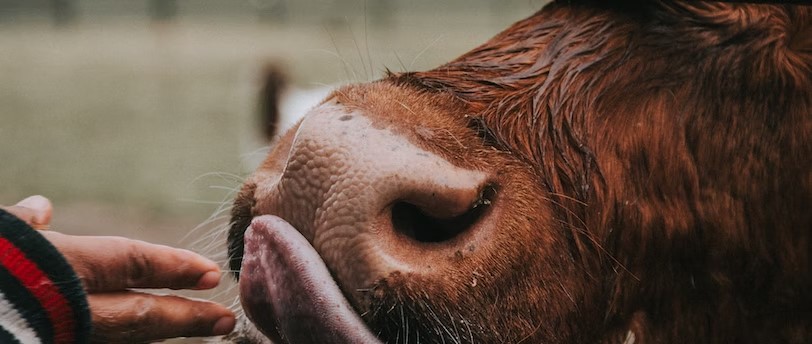Do you ever stop and think about the impact your lifestyle choices have on the well-being of animals? When it comes to living an organic life, there is a profound connection between this conscious choice and animal welfare. By embracing organic living, you not only prioritize your own health but also contribute to the betterment of animal lives in numerous ways.
In today’s world, where environmental concerns are at the forefront of our minds, adopting an organic lifestyle holds immense benefits for both humans and animals. Organic farming practices prioritize sustainable methods that promote biodiversity and protect natural habitats. This means that when you choose organic products, you are indirectly supporting ethical farming practices that prioritize the well-being of animals. From reducing pesticide usage to promoting soil fertility through natural means, organic living ensures a healthier ecosystem for all creatures great and small. So by making this choice, you actively contribute to creating a more compassionate world for animals to thrive in.
Key Takeaways
- Organic living choices have a profound impact on animal welfare, prioritizing sustainability and protecting natural habitats.
- Ethical farming practices prioritize the health and happiness of animals by providing ample space and a balanced diet.
- Supporting local and sustainable agriculture benefits animal welfare, minimizes synthetic chemicals, and promotes biodiversity, while also supporting farmers and fostering a sense of community.
- Raising awareness about mistreatment in factory farming can improve animal welfare standards and reduce cruelty in the food industry.
Table of Contents

The Environmental Benefits of Organic Living
You’ll see how living organically can create a lush, vibrant environment that supports the well-being of animals. By choosing sustainable agriculture and adopting eco-friendly practices, you are helping to preserve our planet’s natural resources and reduce pollution. Organic farming methods focus on soil health and biodiversity, which means that the land is nourished and not depleted of nutrients. This leads to healthier plants, cleaner waterways, and a thriving ecosystem for animals.
One of the key principles of organic living is sustainable agriculture. Instead of relying on synthetic fertilizers and pesticides, organic farmers use natural methods to cultivate their crops. They prioritize soil health by rotating crops, using compost or manure as fertilizer, and avoiding chemicals that harm beneficial insects like bees. These practices ensure that the land remains fertile for future generations while minimizing the negative impact on wildlife habitats.
In addition to sustainable agriculture, organic living promotes eco-friendly practices that benefit animal welfare. By choosing organic products such as food, clothing, and household items made from natural materials, you are supporting industries that prioritize the ethical treatment of animals. Organic farming also promotes biodiversity by providing habitat for birds, insects, and other wildlife species. When you live organically, you contribute to creating a harmonious environment where animals can thrive alongside humans.
Living organically not only benefits your personal well-being but also creates a positive ripple effect on animal welfare. By embracing sustainable agriculture and eco-friendly practices in your daily life choices, you actively contribute to creating a lush and vibrant environment where both humans and animals can flourish together in harmony.
Ethical Farming Practices and Animal Welfare
Explore the fascinating world of ethical farming practices and discover how they can enhance the well-being of animals. Ethical farming practices prioritize the health and happiness of animals, ensuring that they are treated with compassion and respect throughout their lives. These practices go beyond simply providing animals with enough space to roam; they also involve giving them quality food, clean water, and appropriate medical care. By following ethical farming practices, farmers create a nurturing environment where animals can thrive.
One key aspect of ethical farming practices is providing animals with ample space to move around freely. This allows them to engage in natural behaviours such as grazing or foraging, which are essential for their physical and mental well-being. Animals raised in overcrowded conditions often suffer from stress-related illnesses and exhibit abnormal behaviours due to the lack of space. Ethical farmers understand this and ensure that their animals have plenty of room to move about comfortably.
In addition to spacious living conditions, ethical farming practices also focus on providing animals with a balanced diet that meets their nutritional needs. Farmers carefully select high-quality organic feed for their livestock, ensuring that it is free from harmful chemicals or genetically modified organisms (GMOs). This not only supports the health of the animals but also prevents any potential negative effects on consumers who consume animal products.
By embracing ethical farming practices, we can contribute to improving animal welfare. These practices promote a compassionate approach towards raising animals for food by prioritizing their physical and emotional well-being. When you choose products from farms that follow these principles, you are supporting a system that values animal welfare while enjoying high-quality organic products at the same time.
Supporting Local and Sustainable Agriculture
By supporting local and sustainable agriculture, you can witness vibrant farmers markets filled with fresh produce and connect with the hardworking individuals who cultivate our food. Sustainable farming methods prioritize environmental stewardship, using practices that minimize the use of synthetic chemicals and promote biodiversity. This not only benefits the health of the land and water but also ensures that animals raised on these farms have access to clean air, fresh water, and natural habitats.
Community-supported agriculture (CSA) is another way to support local and sustainable agriculture. Through a CSA program, you can directly contribute to a farmer’s livelihood by purchasing a share of their harvest for a season or year. In return, you receive a weekly box of fresh, seasonal produce straight from the farm. This model not only helps farmers financially but also fosters a sense of community as members come together to support local food production.
Choosing to support local and sustainable agriculture has numerous benefits beyond animal welfare. It reduces our carbon footprint by decreasing transportation distances for food, supports local economies by keeping money circulating within communities, and increases food security by promoting diverse sources of locally grown food. By embracing these values and making conscious choices about where we source our food from, we can create a more compassionate and resilient food system that prioritizes both human well-being and animal welfare.
Reducing Animal Cruelty in the Food Industry
Immerse yourself in the realities of the food industry and witness the shocking mistreatment of animals that occurs behind closed doors. Animal rights in factory farming is a pressing issue that cannot be ignored. In these large-scale operations, animals are often confined to cramped spaces, subjected to harsh conditions, and treated as mere commodities. The use of antibiotics and growth hormones is rampant, causing further harm to their well-being. It’s time we take a stand against this cruelty and demand better treatment for these innocent creatures.
Thankfully, there are alternatives to animal testing that can help reduce animal cruelty in the food industry. Advances in technology have allowed us to develop innovative methods such as in vitro testing and computer simulations that provide accurate results without subjecting animals to unnecessary harm. These alternatives not only spare countless lives but also offer more reliable data for research purposes. By supporting and promoting these alternative methods, we can move towards a future where animal testing becomes obsolete.
It is our moral responsibility to ensure that animals are treated with compassion and respect throughout every stage of food production. By raising awareness about the mistreatment that occurs within factory farming and advocating for alternatives to animal testing, we can create a significant impact on improving animal welfare standards. Let us strive for a world where organic living goes hand-in-hand with prioritizing the ethical treatment of animals, allowing us all to live harmoniously with nature while enjoying healthy and sustainable food options.
Promoting a Compassionate Lifestyle
Witnessing the shocking mistreatment of animals in the food industry, it’s time we embrace a lifestyle that prioritizes compassion and respect for all living beings. One way to do this is through veganism and making compassionate choices in our daily lives. By choosing to adopt a vegan lifestyle, we are actively advocating for animal rights and taking a stand against the cruelty that occurs within the food industry. Veganism not only benefits animals but also has numerous environmental and health benefits.
Adopting a vegan lifestyle means abstaining from consuming any animal products, including meat, dairy, eggs, and honey. It may seem like a big change at first, but there are countless delicious plant-based alternatives available today. Making compassionate choices when it comes to our food allows us to align our actions with our values of kindness and empathy towards all living creatures.
By advocating for animal rights through our dietary choices, we can help create a world where animals are treated with dignity and respect. Choosing vegan options whenever possible sends a powerful message to industries that profit from animal exploitation. It shows them that there is demand for cruelty-free products and encourages them to shift their practices towards more ethical alternatives.
Promoting a compassionate lifestyle by embracing veganism and making compassionate choices is essential in advocating for animal rights. By refusing to support industries that harm animals, we can contribute to creating a more just and humane society. Every meal is an opportunity to make a difference – let’s choose compassion over cruelty and pave the way towards a better future for all living beings.
Conclusion
In conclusion, choosing to live an organic lifestyle not only benefits the environment but also promotes animal welfare. By opting for organic products and supporting ethical farming practices, you are actively contributing to a more compassionate food industry. You are making a conscious decision to reduce animal cruelty and promote a sustainable and humane way of living.
By supporting local and sustainable agriculture, you are ensuring that animals are raised in a healthy and natural environment, free from the harsh conditions of factory farming. This means that they have access to open spaces, fresh air, and proper nutrition. Your choice to consume organic products also means that you are avoiding harmful pesticides and chemicals that can harm both animals and the environment.
Living organically is not just about what you eat; it is about embracing a compassionate lifestyle. It is about being aware of the impact your choices have on the well-being of animals and taking action to make a positive change. By making conscious decisions when it comes to your food choices, you are sending a powerful message: that you value animal welfare and believe in creating a better world for all creatures.
So next time you go grocery shopping or sit down for a meal, remember the connection between organic living and animal welfare. Choose organic products whenever possible, support local farmers who prioritize ethical practices, and spread awareness about the importance of adopting a compassionate lifestyle. Together, we can create a future where animals are treated with kindness, respect, and dignity – all while nourishing our bodies in an environmentally responsible way.

